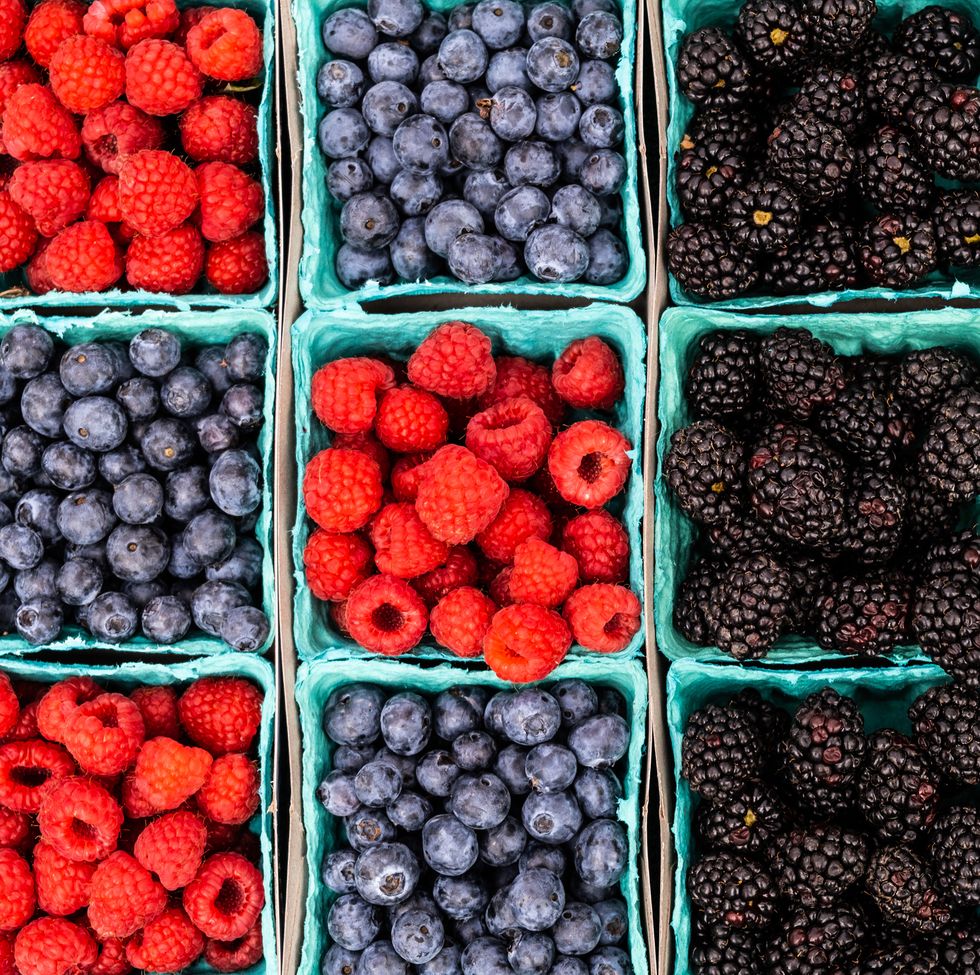
Antioxidants—we’ve all heard the word, and we know they’re good for us, but if you’re still not quite sure what exactly they are, you’re far from alone.
As it turns out, studies have revealed that people who eat plenty of antioxidant-rich foods have reduced risk for disease, increased life expectancy, and potentially faster splits. Antioxidants can give your body the extra help it needs to step into each new workout more refreshed and recovered.
We chatted with two experts to learn more about what research is currently saying about antioxidants for runners, as well as some tips on consuming more of them.
What are antioxidants?
Antioxidants are molecules that can help your body fight free radicals, which are unstable atoms that can damage cells and cause health issues. While training, it’s very likely that your body is experiencing surges of inflammation, immune dysfunction, and oxidative stress—a condition in which the production of free radicals exceeds your body’s ability to handle them and prevent the damage. Your body has systems in place to reduce inflammation and oxidative stress within a certain range, but prolonged endurance exercise commonly places your body beyond that range. Fortunately, antioxidant-rich foods can give your body the extra help it needs to combat that stress.
David Nieman, Dr.PH., FACSM, director of the Human Performance Lab at the North Carolina Research Campus and finisher of 58 marathons and ultramarathons, tells Runner’s World that while antioxidants are not “magic bullets,” they are an excellent factor to offset the stress that comes with running.
“It takes the edge off of oxidative stress, inflammation, and immune dysfunction, it improves viral defense, and reduces the number of days of illness,” Nieman says. “It is one important strategy to just keep your health up at all times so that you can perform as a runner.”
An important note to make around antioxidants is that they are not only good for you in general, but they can also enhance your performance while you run due to their ability to protect your cell membranes from oxidative stress in the first place—meaning the better protection you provide to your muscles on the run, the better your muscles will feel.
What foods are rich in antioxidants?
Research shows that consuming five to nine pieces of fruits and vegetables per day (the upper quartile for the population) can provide the best benefits. Eating a wide variety of fruits and vegetables is important, but keeping options rich in polyphenols are especially important for runners. (Polyphenols are a sub-group of phytochemicals and are essentially very good antioxidants.) Polyphenols are found in a variety of plant foods and are especially rich in berries, cherries, dark chocolate, green tea, and even coffee.
Typically, runners train with some form of carbohydrate, whether that is in the form of gels or sports drinks. However, fruits can offer carbohydrates as well as antioxidants, which is an excellent combination for fueling your run, protecting your body, and getting a head start on recovering for your next run. Given their added health benefits, fruits (or products containing fruit extracts) may very well emerge as the optimal fuel source when compared to the more traditional sports carbohydrate options due to their added perk of containing antioxidants.
“We have a lot of data now showing that just having some fruit with water is great—better than a sports drink and much healthier in the long run,” Nieman says.
Ideally, before and during training, consider fruit-based options that have a lower fibre content to avoid gastrointestinal (GI) distress. For example, bananas have many metabolites that exert anti-inflammatory effects. Similarly, dates, diluted fruit juices, and even sweetened tea offer the same carbohydrate plus antioxidant benefits. While incorporating fruit into your on-the-run fueling plan can have many benefits, you must combine them with the fluids and electrolytes that you need for hydration, and most importantly, practice in training.
Here’s how to incorporate more antioxidants into your diet
Adding more antioxidants into your diet likely has more training benefits than any supplement or performance-enhancing fad on the market. However, recognizing the benefits versus actually incorporating them into your diet may be the larger challenge. For that reason, Namrita Brooke, Ph.D., R.D.N., a sports dietitian and avid runner, offers several tips to make hitting your five to nine pieces of fruits and vegetables per day more achievable and practical for the busy runner.
- Have plenty of washed fresh fruits and vegetables around for snacking and for adding to a meal (such as apples, pears, peaches, cherries, carrots, snap peas, cucumber, tomatoes), and don’t be afraid to use a variety of frozen fruits in smoothies and grain bowls.
- Frozen vegetables sautéed or steamed make healthy, quick sides for your meals.
- Adding in a variety of fresh or frozen fruits and vegetables (such as leafy greens, zucchini, cucumber, carrots, and frozen cauliflower) to your smoothies can increase the nutritional value of them at any time of day.
It’s important to remember that the phytochemicals in fruits and vegetables are just one benefit that these nutrition powerhouses bring to the table.
“Between the antioxidant properties and micronutrients, such as vitamin C, vitamin A, and vitamin K, as well as the fibre that they provide, fruits and vegetables make an excellent source of carbohydrate for a runner,” Brooke says.
An excellent starting place is to think about how you can add a little more colour to your daily meals. Around training alone, you may see excellent results from simply adding a banana to your prerun toast, replacing one of your long run gels with a few dates, and adding frozen mixed berries to your post-run smoothie. If you’re willing to think ahead and try new things, the options are endless and could potentially come with an always-welcome boost to your running.